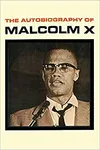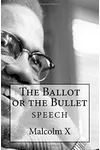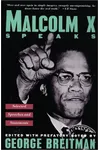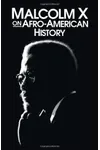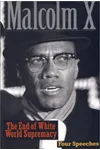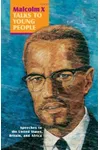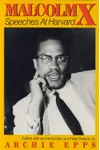Imagine a fiery orator whose words shook a nation, demanding justice and dignity for African Americans—meet Malcolm X! Born Malcolm Little in 1925, he rose from a turbulent youth to become a towering figure in the civil rights movement, blending sharp intellect with unapologetic rhetoric. His journey from prison to global advocate for human rights captivates and inspires to this day.
Malcolm X’s life was a whirlwind of transformation, marked by his time with the Nation of Islam, his ideological evolution, and his tragic assassination in 1965. His autobiography, co-authored with Alex Haley, remains a literary cornerstone, offering a raw, unflinching look at his life and legacy.
The Making of Malcolm X
Born in Omaha, Nebraska, Malcolm Little faced hardship early on. His father, a Baptist minister and activist, was killed when Malcolm was six, likely by white supremacists. His mother struggled to raise eight children, and by his teens, Malcolm was entangled in crime, landing in prison by 1946. There, he discovered the Nation of Islam, igniting a intellectual awakening. He devoured books, honed his debating skills, and emerged as Malcolm X, shedding his 'slave name' for a symbol of reclaimed identity.
Malcolm X’s Unforgettable Voice
Malcolm X wasn’t a writer in the traditional sense, but his speeches and writings, compiled in works like The Autobiography of Malcolm X (1965), are literary dynamite. Co-written with Alex Haley, the autobiography traces his evolution from street hustler to global human rights advocate, blending vivid storytelling with piercing social critique. Its raw honesty and dynamic prose make it a classic, translated into dozens of languages.
Other key works include Malcolm X Speaks (1965), a collection of his speeches, showcasing his electrifying oratory and evolving views, particularly after his 1964 split with the Nation of Islam. His Message to the Grassroots speech, with its call for black unity, remains a masterclass in persuasive rhetoric. Later, By Any Means Necessary (1970) captured his growing embrace of universal human rights, influenced by his travels to Africa and Mecca. His style—direct, confrontational, yet deeply reflective—challenged readers to face uncomfortable truths about race and power.
Malcolm’s work stood out for its urgency and clarity. He didn’t just speak; he demanded attention, weaving personal stories with broader calls for justice. His shift from separatism to a more inclusive vision showed a rare willingness to evolve publicly, making his writings both timeless and deeply human.
Why Malcolm X Matters
Malcolm X’s impact on the civil rights movement and beyond is immeasurable. He gave voice to African Americans’ anger and pride, inspiring the Black Power movement and figures like Stokely Carmichael. His insistence on self-defense and economic independence reshaped debates on racial justice, while his global perspective linked the African American struggle to anti-colonial movements worldwide. Today, his ideas resonate in discussions on systemic racism and empowerment, cementing his place as a cultural icon.
His assassination at 39 cut short a life still evolving, but his legacy endures in literature, film, and activism. The Autobiography continues to inspire readers, while his speeches fuel movements for justice. Malcolm X remains a symbol of courage, urging us to confront inequality with unwavering resolve.
About Malcolm X
- Born: May 19, 1925, Omaha, Nebraska
- Key Works: The Autobiography of Malcolm X, Malcolm X Speaks, By Any Means Necessary
- Died: February 21, 1965, assassinated in New York City
- Notable Achievement: Transformed global discourse on race and human rights
Ready to dive into Malcolm X’s world? Grab The Autobiography of Malcolm X and experience the power of his voice firsthand!
